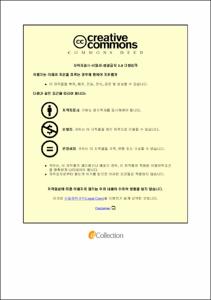복합운송주선인의 서비스 실패요인들이 서비스 회복노력 선택에 미치는 영향 분석
- Abstract
- This study is to investigate the strategy on forming a long term relationship between logistics service provider and demander including maintaining strategy of it. For these purposes, the impact of logistics companies service failure factors on service recovery are analysed.
This study examined effectiveness of service recovery in a setting of freight forwarder. Based on prior research on service recovery strategies as well as fairness theory, two aspects of recovery strategies were determined as major recovery strategies(psychological and tangible aspect) in a pilot study.
A sample of 175 respondents participated in this study. After being briefed about the purpose of the study, the respondents were asked to fill out the survey questionnaire on the effectiveness of the recovery strategies.
Reliability for measuring procedure yields the same result on repeated trials and validity for identifying the accuracy of the accrual measuring instrument are also used. Suggested hypothesis are verified through multiple regression method and the testing results are shown as follows; First, human, regulation and essential factor have a positive effect to the service recovery of psychological aspect against the service failure of logistics service providing company.
Second, human, essential and environmental factor have a positive effect to the service recovery of tangible aspect against the service failure of logistics service providing company.
- Issued Date
- 2017
- Awarded Date
- 2017. 2
- Type
- Dissertation
- Publisher
- 부경대학교 대학원
- Affiliation
- 부경대학교 대학원
- Department
- 대학원 국제통상물류학과
- Advisor
- 하명신
- Table Of Contents
- 제 I 장 서 론 1
제 1 절 연구의 배경 및 목적 1
제 2 절 연구의 내용 및 방법 4
제 II 장 이론적 배경 6
제 1 절 복합운송주선인 6
가. 복합운송주선인의 정의 6
나. 복합운송 주선인의 종류 7
다. 복합운송주선인의 기능 8
라. 복합운송주선인의 책임 10
제 2 절 서비스 실패 11
가. 서비스 실패의 개념과 정의 11
나. 서비스 실패의 원인 및 형태 14
제 3 절 서비스 회복 19
가. 서비스 회복의 개념과 구성 및 정의 19
나. 서비스 회복 노력 26
제 III 장 연구설계 28
제 1 절 연구모형 28
제 2 절 연구 가설 설정 29
가. 서비스 실패요인과 회복노력 29
제 3 절 변수의 조작적 정의와 측정도구의 개발 32
가. 서비스 실패의 측정변수 32
나. 서비스 회복 노력 측정변수 36
제 IV 장 실증 분석 38
제 1 절 조사대상의 선정 및 분석 방법 38
가. 조사대상의 선정 및 자료수집 방법 38
나. 분석방법 39
제 2 절 표본의 일반적 특성 40
가. 화주의 일반적 특성 40
제 3 절 신뢰성 및 타당성 분석 43
제 4 절 가설의 검정 46
가. 가설 H1 검정 46
나. 가설 H2 검정 47
다. 가설검정 결과 49
제 V 장 결론 50
제 1 절 연구결과의 요약 50
가. 서비스 실패요인이 서비스 회복노력에 미치는 영향 51
제 2 절 연구의 시사점 53
가. 학문적 시사점 53
나. 실무적 시사점 54
제 3 절 연구의 한계 및 향후 연구 방향 57
참고문헌 59
부 록 67
- Degree
- Master
- Appears in Collections:
- 대학원 > 국제통상물류학과-FTA비즈니스전공
- Files in This Item:
-
-
Download
 복합운송주선인의 서비스 실패요인들이 서비스 회복노력 선택에 미치는 영향 분석.pdf
기타 데이터 / 1.33 MB / Adobe PDF
복합운송주선인의 서비스 실패요인들이 서비스 회복노력 선택에 미치는 영향 분석.pdf
기타 데이터 / 1.33 MB / Adobe PDF
-
Items in Repository are protected by copyright, with all rights reserved, unless otherwise indicated.